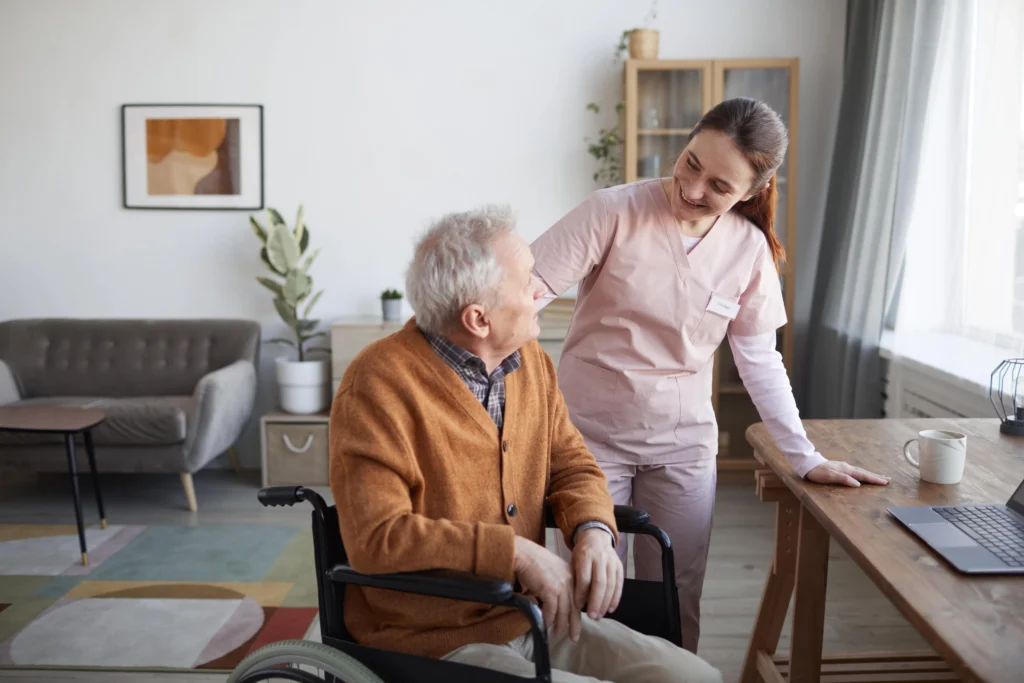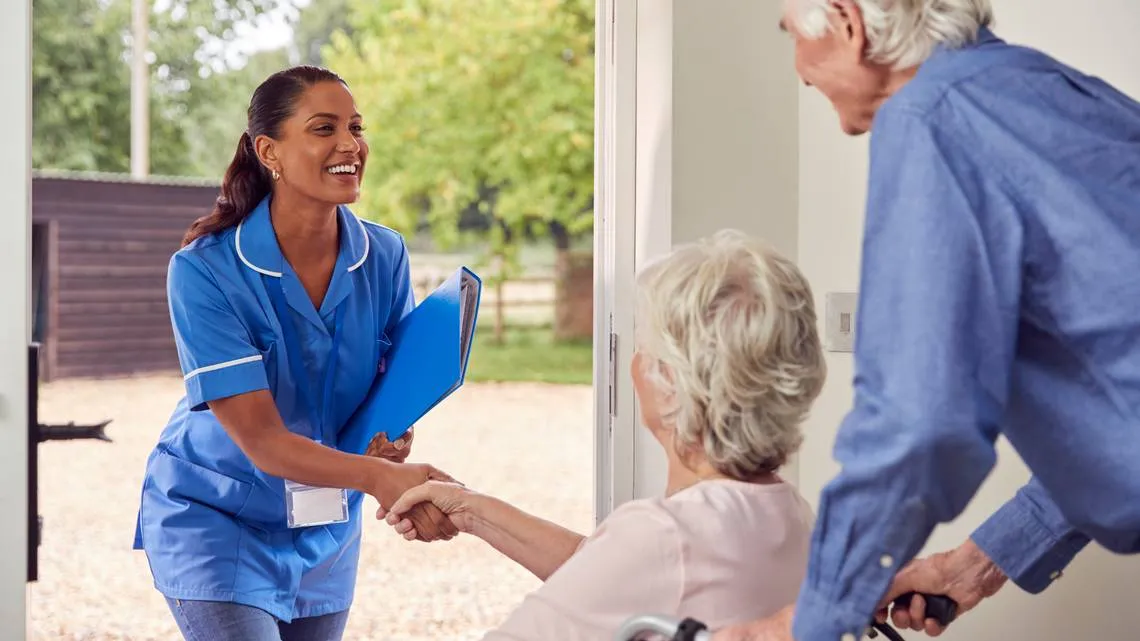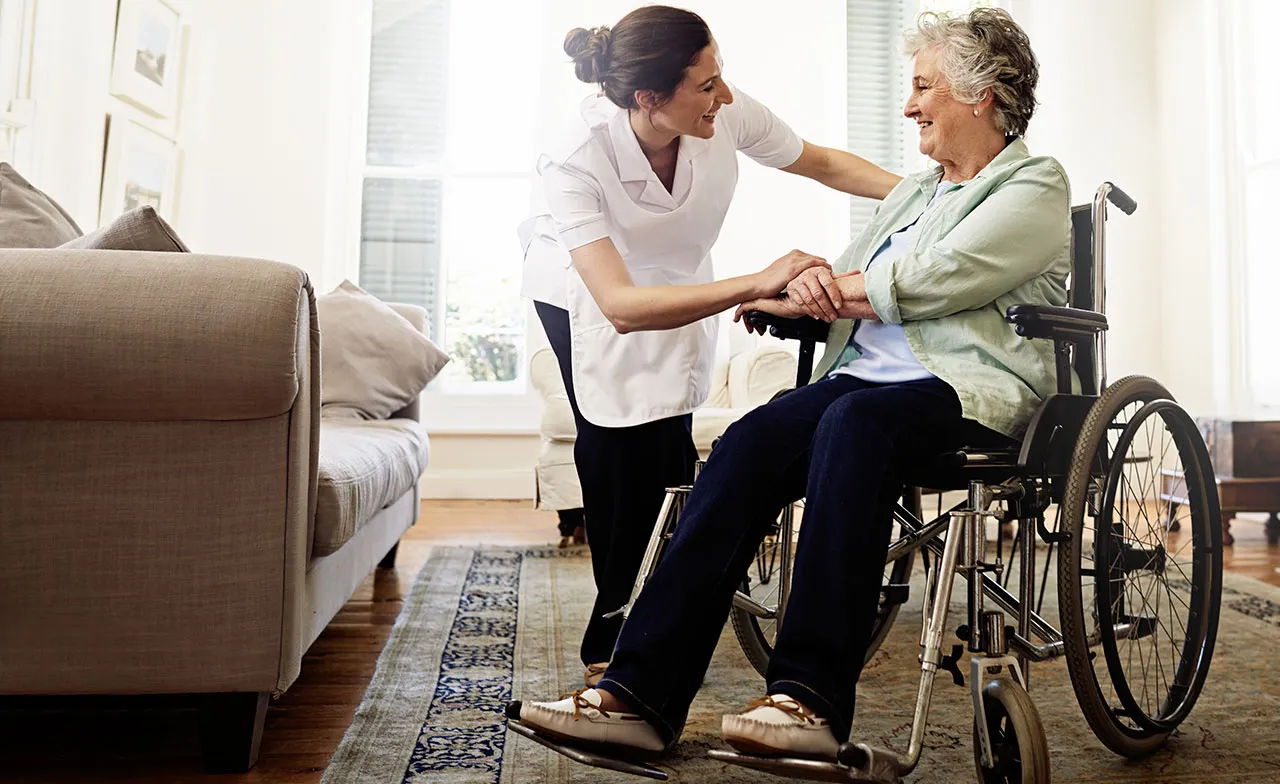Caring for an aging loved one is both a privilege and a journey filled with deep emotions, big decisions, and everyday challenges. For families in Jefferson County, finding compassionate, affordable, and trustworthy home care solutions is a top priority—and rightly so. With its rich community resources, supportive infrastructure, and growing senior population, Jefferson County is an ideal place to explore the right mix of home care services. Home care for aging loved ones is more than just help with daily chores—it’s about preserving dignity, ensuring safety, and maintaining connections. And the good news? You don’t have to figure it all out alone.
Understanding Home Care in Jefferson County
Home care is the umbrella term for a wide variety of services that allow seniors to age safely and gracefully in their own homes. Unlike institutional care such as nursing homes or assisted living facilities, home care is about bringing support to your loved one’s doorstep—literally.
Home care services can include personal assistance with hygiene, dressing, or eating, as well as skilled nursing for chronic conditions or post-surgical recovery. There’s also companionship care, which offers much-needed emotional support and interaction.
In Jefferson County, several licensed agencies and independent caregivers offer tailored services, regulated by the Alabama Department of Public Health. Families can choose the level of support that aligns with their loved one’s unique needs.

Why Home Care Is a Growing Need?
Nationwide, more than 10,000 people turn 65 every single day. Jefferson County is no exception. With the shift in demographics comes a shift in caregiving preferences.
Many seniors want to maintain their independence, and families often want to avoid the emotional toll of relocating loved ones. Moreover, the cost of institutional care is soaring. Home care provides a more affordable, flexible option that supports aging in place—something 9 out of 10 older adults say they prefer.
Benefits of Home Care for Seniors
There’s no place like home, especially when you’re in your golden years. Familiar surroundings reduce stress and confusion, particularly for individuals with memory issues. Home care also promotes a sense of autonomy. Unlike in facilities with rigid schedules, seniors at home can stick to their routines—waking up late, gardening, or enjoying a favorite chair by the window. Additionally, personalized one-on-one care fosters strong caregiver-client relationships, boosting emotional well-being and often extending life expectancy.
Familiar Environment Enhances Comfort
One of the most significant benefits of home care is allowing seniors to remain in a space they know and love. Familiar surroundings—like a favorite chair, family photos, or a pet—offer a sense of safety and security. This emotional comfort reduces anxiety, especially for individuals dealing with dementia or Alzheimer’s. Home care supports aging in place, which means your loved one doesn’t have to adapt to new environments or routines. It helps seniors maintain their independence while receiving the help they need, right where their memories live. Plus, being at home encourages better sleep, healthier eating, and a calmer lifestyle overall.
Personalized One-on-One Attention
Unlike assisted living facilities or nursing homes, home care offers individualized attention. Caregivers focus solely on one client, ensuring tailored support based on personal habits, health needs, and preferences. Whether it’s following a specific meal plan or daily walks in the garden, everything can be customized. This focused care often leads to quicker recoveries, better medication management, and a more consistent daily routine. With one-on-one care, caregivers form deep connections with seniors, building trust and companionship. That bond is especially meaningful for older adults who may feel isolated. Personalized care means your loved one gets more than help—they get a genuine human connection.
Improved Physical and Mental Health
Seniors receiving care at home often show better health outcomes than those in institutional settings. Why? Because home care helps reduce stress, prevents unnecessary hospitalizations, and encourages physical activity. Caregivers can support exercise routines, ensure medication is taken correctly, and prepare nutritious meals tailored to health conditions like diabetes or heart disease. Mentally, home care fosters positivity. Seniors who remain engaged through conversations, hobbies, and gentle physical activity tend to be more mentally alert and emotionally stable. By addressing both physical and emotional well-being, home care provides a holistic approach that supports the overall vitality of aging loved ones.
Stronger Family Involvement and Peace of Mind
Home care allows family members to be more involved in their loved one’s daily life and care decisions. It offers flexibility—family can participate in caregiving, visit regularly, or check in as needed. This constant connection ensures transparency and fosters emotional bonds. For families living far away, professional caregivers offer regular updates, reducing worry and stress. Knowing that a trusted caregiver is handling daily tasks brings tremendous peace of mind. It also allows families to focus on quality time, not just caregiving responsibilities. Home care is not just a service—it’s a support system for the whole family.
Signs Your Loved One Needs Home Care
Sometimes, the signs are subtle. A burnt pot. Missed medications. An untouched stack of mail. Other times, they’re more obvious—like frequent falls or hospital visits. Watch for:

Decline in Personal Hygiene
If your loved one starts neglecting their grooming habits—like unbrushed hair, body odor, wearing the same clothes for days, or forgetting to bathe—it may be more than forgetfulness. A decline in personal hygiene often signals mobility issues, cognitive decline, or even depression. It can also point to difficulty managing daily routines that once came naturally. Home care can step in to assist with bathing, grooming, and dressing, all while maintaining your loved one’s dignity. When once-simple tasks become overwhelming, having support in these areas ensures that your family member stays healthy, clean, and confident in their appearance.
Frequent Forgetfulness or Confusion
Everyone forgets things occasionally, but when forgetfulness becomes a daily issue—missing doctor appointments, misplacing keys constantly, or leaving the stove on—it could be a sign of early-stage dementia or cognitive decline. Confusion about time, names, or locations can be dangerous, especially if the person lives alone. These lapses can lead to accidents or lost medications. In such cases, home care provides much-needed consistency and supervision. Caregivers can help manage routines, provide medication reminders, and ensure safety in the home. Timely support can slow cognitive deterioration and provide structure to everyday life, reducing stress for both seniors and their families.
Difficulty Managing Household Tasks
Is the sink always full of dishes? Is mail piling up? Are bills going unpaid? These are subtle but telling signs that your loved one is struggling to keep up. Physical limitations, declining vision, or fatigue can make simple household chores feel overwhelming. Tasks like vacuuming, cooking, or even doing laundry may be neglected. Home care services can provide housekeeping, meal prep, and organizational help—keeping the home safe, clean, and comfortable. Not only does this reduce the risk of illness or accidents, but it also ensures that your loved one can continue living independently without sacrificing their quality of life.
Frequent Falls or Physical Imbalance
If your loved one is falling often, has bruises they can’t explain, or appears unsteady when walking, it’s a serious red flag. Falls are a leading cause of injury among seniors and can have devastating consequences. A lack of coordination, poor muscle strength, or vision problems can increase this risk. Home care professionals can help assess mobility needs, provide hands-on support, and recommend adaptive tools like walkers or grab bars. They also assist with exercises to improve balance and flexibility. Early intervention through home care can prevent more serious injuries and help seniors move around more confidently and safely.
Conclusion
Recognizing when a loved one needs home care can be challenging, but early action can make a significant difference in their quality of life. From personal hygiene struggles to frequent falls, these signs shouldn’t be ignored. Home care offers compassionate, personalized support while allowing seniors to stay in the comfort of their own homes. By understanding these signals and seeking help promptly, families can ensure their aging relatives remain safe, healthy, and emotionally connected throughout their golden years.







